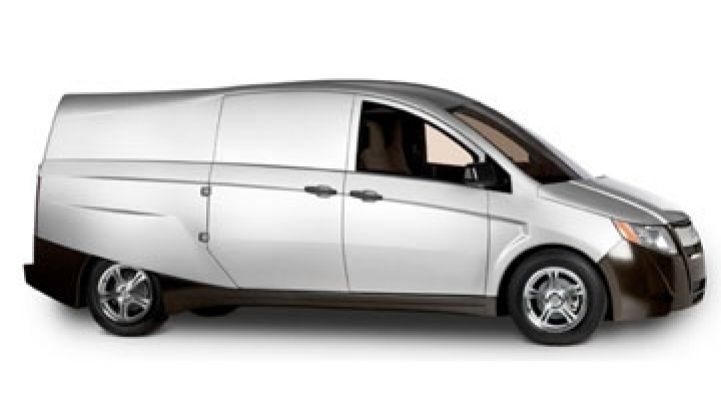General Motors wants to lose weight.
The large, but listing, auto maker has taken an equity stake in Bright Automotive, which wants to develop and sell lightweight plug-in hybrid cars and utility vehicles. GM set up GM Ventures earlier this year to invest in startups, although the company has made investments in startups, like fuel maker Coskata, before. Bright, which spun out of the Rocky Mountain Institute, will also get access to GM's advanced transmissions and other technologies. Conceivably, GM can also get access to Bright's technologies. Terms of the deal were not disclosed.
The relationship will also help accelerate the release of the car that Bright had been hoping to get into production by 2013. The companies said that Bright will now "ramp up the development" of a production program for the third quarter. Thus, it could show up in 2012 or 2012, I am guessing.
Like San Diego's Aptera, Bright is paying particular attention to weight, wind resistance, and materials in the design of its car platform, called IDEA. Bright's car will weigh 3,200 pounds, or 1,500 pounds less than the average weight of its competitors. By reducing wind resistance and weight, the company's engineers effectively are reducing the amount of work an electric engine will have to perform to get the car up to driving speeds, which in turn conserves battery power. Weight -- it's the third fuel.
Weight and poor design result in a disproportionate amount of fuel consumption in vehicles, former CEO John Waters told us last year when the company came out of stealth mode. The U.S. Post Office operates 162,000 delivery trucks that get around 10 miles per gallon, he said, and these trucks drive an average of around 18 miles a day. If those trucks are put to use 300 working days a year, that's 87.5 million gallons of gas consumed by those little white trucks trolling your neighborhood. Boosting mileage to 100 miles per gallon conceivably could save nearly 80 million gallons of gas.
A lighter car also means a smaller battery pack, which in turn reduces the cost. Batteries are one of the most expensive components of electric cars -- and one of the primary reasons electrics and plug-in hybrids haven't gone mainstream yet.
The IDEA will be a parallel plug-in hybrid, similar to the plug-ins under development at Ford and Toyota. GM's Volt, and the coming Fisker Karma, are series hybrids. While both types of plug-ins will coexist, it will be interesting to see how these two different approaches to the problem will work in reality.



